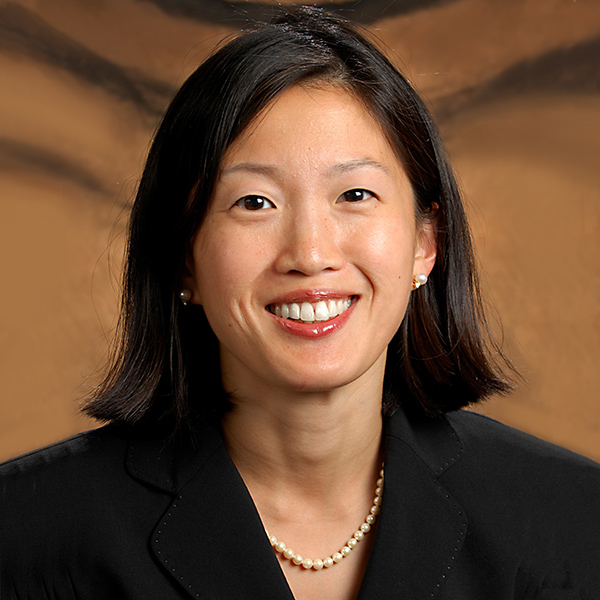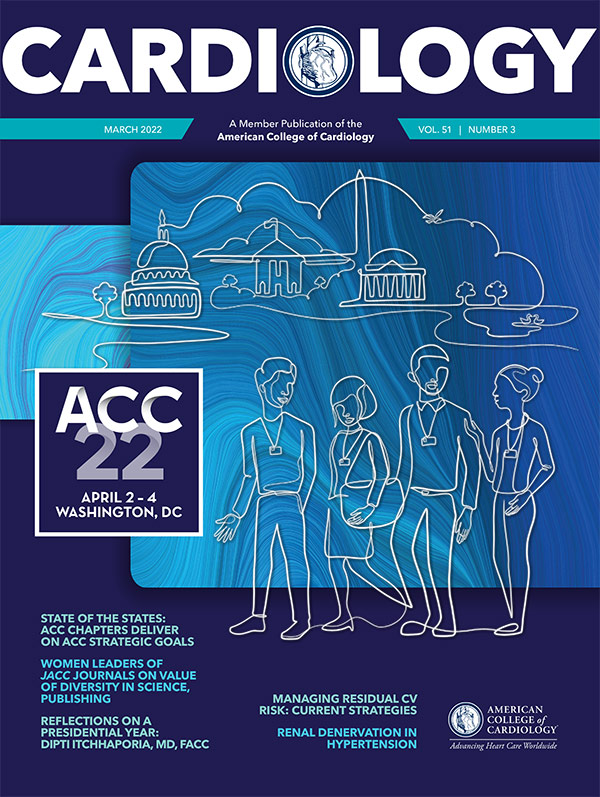Feature | Women Leaders in Publishing: Bringing Diversity to Research, Science




Look at the masthead of nearly any scientific or medical journal and it will confirm what most of us know: the number of women on the editorial boards are increasing, but parity with men is still a work in progress. Indeed, a study published just last year found that less than a third of the editors-in-chief of leading medical journals in 27 of 41 specialty areas were women.1
Building the next generation of strong leaders – in science, medicine and publishing – requires women and underrepresented minorities hold leadership positions. This year marks the first time that four women will be at the helm of JACC Journals: Julia Grapsa, MD, PhD, FACC, editor-in-chief of JACC: Case Reports; Bonnie Ky, MD, MSCE, FACC, editor-in-chief of JACC: CardioOncology; Candice Silversides, MD, FACC, editor-in-chief of JACC: Advances and Biykem Bozkurt MD, PhD, FACC, incoming editor-in-chief of JACC: Heart Failure.
"We know that diversity on editorial boards will not only improve our relevance, but it will also convey a sense of balance and fairness and provide role models for future generations of women," says Bozkurt. "Diverse editorial boards also demonstrate that our actions are in line with our values for equity, and it increases the likelihood of competitive submissions."
In a series of interviews with Cardiology, each of the editors-in-chief discuss the value of having women in leadership roles, the importance of finding a good mentor and the challenges that persist in achieving work-life balance.
Biykem Bozkurt MD, PhD, FACC
Women Helping Women
Experience it Yourself
All four editors are looking to curate the most impactful and innovative science, extend their global communities, advance patient care and encourage all authors to submit rigorous science to their respective journals. Learn more about each of the journals, as well as the six other JACC Journals, at JACC.org.
"Women are underrepresented in clinical trials as well as in the leadership of trials and publications," says Grapsa. An analysis published in JACC in 2020 revealed that just 10.3% of steering committee positions are held by female physicians among 200 cardiovascular medicine trials published in three high-impact journals.2
For these editors-in-chief, such statistics and the need for equity are top of mind. "I try to promote diversity in all aspects," Ky shares. "This is important in terms of the makeup of the journal's board, editorial invitations, commissioned reviews and published research. We want excellence and expertise, and that needs to come from a wide variety of people, each with unique perspectives, across various disciplines."
Grapsa adds, "Women in leadership positions in publishing are able to encourage women to submit their papers to high-quality journals."
Julia Grapsa, MD, PhD, FACC
Mentorship: A 'Critical Vehicle'
A mentor whose values align with their own ranks as one of the more important ways to grow a career in medicine for all four editors-in-chief.
"A mentor is critical in medicine," says Silversides. "I've been fortunate to have good people who could help me work through setbacks."
According to Silversides, a mentor has your back and helps keep you on track in your career. While having women as a mentor is important, and about half of hers have been, Silversides notes, most important is a person who cares about you. "I could not have reached this stage of my career without my mentors and I'm grateful to them," she says.
Bozkurt concurs, noting that mentorship is "a critical vehicle" for one's career in helping to provide solutions to the "how" of doing your job by those who have been through it before. "Mentorship is a dynamic and transformative part of one's career," she says, adding that "mosaic mentorship," or receiving guidance from multiple mentors, has served her well.
Bonnie Ky, MD, MSCE, FACC
Work-Life Balance
All four editors-in-chief emphasize the need for greater work-life balance in cardiology, yet they note it can be challenging. According to Silversides, the importance of balancing career growth with family can be particularly challenging for women who are early in their careers.
"There are many challenges for women who would like to start a family and also pursue their academic career," Grapsa says. "Some women are placing their family planning on hold due to concerns about delaying training or falling behind. A healthy work environment that promotes work-life balance provides women with the opportunities they deserve."
"I was pregnant with my two children during training and it was hard," Ky says. "The challenges of raising a family in the midst of a very busy, highly demanding career are significant. At the end of the day, family has to be a priority. I love my work, I love my research and my patients, but as a culture and community we need to be accepting of each other's needs. We have to be able to say, 'it's okay, go home to your family.'"
Organizational change is needed to help address work-life balance for women and in fact for everyone in medicine. An article published in JACC in 2019 has helped to disseminate recommendations from ACC's Women in Cardiology Leadership Council and Diversity Inclusion Task Force to help spur this change.3
Among the "10 Recommendations to Enhance Recruitment, Retention and Career Advancement of Women Cardiologists," are the need for employers and organizations to increase career flexibility, develop informal and formal mentoring resources, and implement strategies to promote women leaders in cardiology. The recommendations for flexibility stress incorporating work-life balance into career planning (such as parental leave for both men and women to promote gender equality in the domestic sphere).
Candice Silversides, MD, FACC
Pursuing Publishing
For women who are interested in pursuing publishing and research as a career path, the editors-in-chief resoundingly agree: Don't get discouraged, the sky's the limit. "Never abandon your ambition," Grapsa says. "If you want to work in publishing or research, find a good mentor to support you. Always speak up." "Be courageous and be bold," Bozkurt says. "It is time for a change. We need women and those underrepresented in medicine to be able to showcase their scholarship and research."
"The more women who are in publishing, the more that other women will realize this is a potential career option," says Silversides. "It's a different career trajectory, but well worth considering." Silversides adds that years ago she wouldn't have thought of publishing as part of her career path. "This opportunity with JACC: Advances has been a really exciting, interesting and fun new aspect of my work," she says.
What are their plans for their journals? All four editors are looking to curate the most impactful and innovative science, extend their global communities, advance patient care and encourage all authors to submit rigorous science to their respective journals.
There is still a lot of work to be done to counteract the challenges women face in medicine. Together, they believe that building diverse leadership in journals – including their work to diversify the editorial boards of their journals – will help to improve the quality of the journal, strengthen the opportunities for women and other underrepresented minority groups, and pave the way for future generations to lead.
Getting Started: Publishing Their First Paper
What was the first paper each of these editors-in-chief had published? And the first paper in a JACC Journal? Here we share the list.
Dr. Grapsa
First paper: Grapsa J, O'Regan DP, Pavlopoulos H, et al. Right ventricular remodeling in pulmonary arterial hypertension with three-dimensional echocardiography: comparison with cardiac magnetic resonance imaging. Eur J Echocardiogr 2010;11:64-73.
First JACC paper: Grapsa J. Left ventricular ejection fraction and global longitudinal strain: Prognostic when not load dependent. J Am Coll Cardiol 2018;72:1065-6.
Dr. Ky
First paper: Singhvi R, Markusen JF, Ky B, et al. Assessment of virus infection in cultured cells using metabolic monitoring. Cytotechnology 1996;22:79-85.
First JACC paper: Ky B, Burke A, Tsimikas S, et al. The influence of pravastatin and atorvastatin on markers of oxidative stress in hypercholesterolemic humans. J Am Coll Cardiol 2008;51:1653-62.
Dr. Silversides
First paper: Shafir MS, Silversides C, Waters I, et al. Patient consent to observation: Responses to requests for written consent in an academic family practice unit. Can Fam Physician 1995;41:1367-72.
First JACC paper: Silversides C, Granton J, Konen E, et al. Pulmonary thrombosis in adults with Eisenmenger syndrome. J Am Coll Cardiol 2003;42:1982-7.
Dr. Bozkurt
First paper: Bozkurt B, Kribbs SB, Clubb FJ, et al. Pathophysiologically relevant concentrations of tumor necrosis factor-a promote progressive left ventricular function and remodeling in rats. Circulation 1998;97:1382-91.
First JACC paper: Bozkurt B, Villaneuva FS, Holubkov R, et al. Intravenous immune globulin in the therapy of peripartum cardiomyopathy. J Am Coll Cardiol 1999;34:177-80.
JACC Journals at ACC.22
All 10 JACC Journals will take the literal and virtual stage during ACC.22. Don't miss the joint ACC/JACC Joint Late-Breaking Clinical Trial session on Saturday, April 2 at 9:30 a.m. ET. In addition, JACC Editor-in-Chief Valentin Fuster, MD, MPH, MACC, will deliver the James T. Dove Keynote on Sunday, April 3 as part of a session focused on the quality of cardiovascular research and what research should be pursued heading into the future.
Other not-to-miss sessions include a Heart 2 Heart Stage discussion on Saturday, April 2 where Silversides and Ky will join a panel to share their perspectives on building a career as a female cardiovascular investigator. Silverside will chair another Heart 2 Heart Stage session on Sunday, April 3 addressing being an effective mentor and mentee for academic cardiologists.
All 10 Editors-in-Chief of the JACC Journals will come together on Monday, April 4 for the much-anticipated "Best of JACC Journals" panel discussion highlighting the best science from the past year.
Last, but certainly not least, a series of special virtual JACC sessions will be available starting Saturday, April 2 and focus on topics like lessons from JACC: Asia, parental leave during fellowship, and case reports highlighting the role of the multidisciplinary team and putting clinical guidelines into practice.
Search by JACC Journals in the Online Program Planner for more information on dates, locations and times. Also follow @JACCJournals on Twitter and Facebook to stay on top of highlights from these sessions, learn more about JACC Journals award winners, and access simultaneous publications. Don't forget to look for the Cardiology Hour hosted by Fuster immediately following the meeting for practice-changing insights into the hottest late-breaking science presented at the meeting.
Access all the JACC Journals and related resources, including podcasts, interactive clinical guideline tools, CME/MOC activities, and more, at JACC.org.
References
- Pinho-Gomes A-C, Vassallo A, Thompson K, et al. Representation of women among editors in chief of leading medical journals. JAMA Netw Open 2021;4:e2123026.
- Denby K, Szpakowski N, Silverman J, et al. Representation of women in cardiovascular clinical trial leadership published by high-impact medical journals. J am Coll Cardiol 2020;75(11 Supplement 1):3492.
- Sharma G, Sarma AA, Walsh MN, et al. J am Coll Cardiol 2019;74:1839-42.
Clinical Topics: Cardiovascular Care Team, Heart Failure and Cardiomyopathies, Acute Heart Failure
Keywords: ACC Publications, Cardiology Magazine, Mentors, Fellowships and Scholarships, Social Media, Family Planning Services, Cardiologists, Gender Equity, Journal Impact Factor, Leadership, Love, Mentoring, Minority Groups, Minority Groups, Parental Leave, Parity, Work-Life Balance, Asia, Patient Care Team, Organizational Innovation, Social Responsibility, Heart Failure, Patient Care, Cardiology, Publishing, Parents, Awards and Prizes
< Back to Listings

